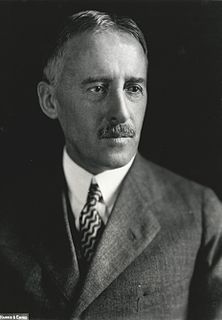A Quote by Robert Benchley
The surest way to make a monkey of a man is to quote him. That remark in itself wouldn’t make any sense if quoted as it stands. The average man ought to be allowed a quotation of no less than three sentences, one to make his statement and two to explain what he meant. Ralph Waldo Emerson was about the only one who could stand having his utterances broken up into sentence quotations, and every once in a while even he doesn’t sound so sensible in short snatches.
Quote Topics
About
Allowed
Any
Average
Average Man
Broken
Broken Up
Could
Even
Every
Explain
Having
Him
His
Itself
Less
Make
Man
Meant
Monkey
Once
Only
Ought
Quotation
Quotations
Quote
Ralph
Ralph Waldo
Remark
Sense
Sensible
Sentence
Sentences
Short
Sound
Stand
Stands
Statement
Than
Three
Two
Up
Waldo Emerson
Way
While
Related Quotes
When people are ready to, they change. They never do it before then, and sometimes they die before they get around to it. You can’t make them change if they don’t want to, just like when they do want to, you can’t stop them. “A man is what he thinks about all day long.” [Ralph Waldo Emerson] Every man who knows how to read has it in his power to magnify himself, to multiply the ways in which he exists, to make his life full, significant and interesting. Aldous Huxley
That same night, I wrote my first short story. It took me thirty minutes. It was a dark little tale about a man who found a magic cup and learned that if he wept into the cup, his tears turned into pearls. But even though he had always been poor, he was a happy man and rarely shed a tear. So he found ways to make himself sad so that his tears could make him rich. As the pearls piled up, so did his greed grow. The story ended with the man sitting on a mountain of pearls, knife in hand, weeping helplessly into the cup with his beloved wife's slain body in his arms.
When the man was disgraced and told to go away, he was allowed to ask all the animals whether any of them would come with him and share his fortunes and his life. There were only two who agreed to come entirely of their own accord, and they were the dog and the cat. And ever since then, those two have been jealous of each other, and each is for ever trying to make man choose which one he likes best. Every man prefers one or the other.
The average man is what his environment and his superstitions have made him; and their function is to make him an ass. He can't add up three or four new circumstances together and perceive what they mean; it is beyond him. He is not capable of observing for himself; he has to get everything at second-hand. If what are miscalled the lower animals were as silly as man is, they would all perish from the earth in a year.
Ideas are powerful things, requiring not a studious contemplation but an action, even if it is only an inner action. Their acquisition obligates each man in some way to change his life, even if it is only his inner life. They demand to be stood for. They dictate where a man must concentrate his vision. They determine his moral and intellectual priorities. They provide him with allies and make him enemies. In short, ideas impose an interest in their ultimate fate which goes far beyond the realm of the merely reasonable.
What the working man sells is not directly his Labor, but his Laboring Power, the temporary disposal of which he makes over to the capitalist. This is so much the case that I do not know whether by the English Law, but certainly by some Continental Laws, the maximum time is fixed for which a man is allowed to sell his laboring power. If allowed to do so for any indefinite period whatever, slavery would be immediately restored. Such a sale, if it comprised his lifetime, for example, would make him at once the lifelong slave of his employer.
People forgot that industry is not an end in itself, but should be only a means to insure to man his material subsistence and to make accessible to him the blessings of a higher intellectual culture. Where industry is everything and man is nothing begins the realm of a ruthless economic despotism whose workings are no less disastrous than those of any political despotism.
No man of common sense will value a woman the less, for not giving herself up at the first attack, or for not accepting his proposal without enquiring into his person or character; on the contrary, he must think her the weakest of all creatures in the world, as the rate of men now goes; in short, he must have a very contemptible opinion of her capacities, nay, even of her understanding, that having but one cast for her life, shall cast that life away at once, and make matrimony like death, be a leap in the dark.
































